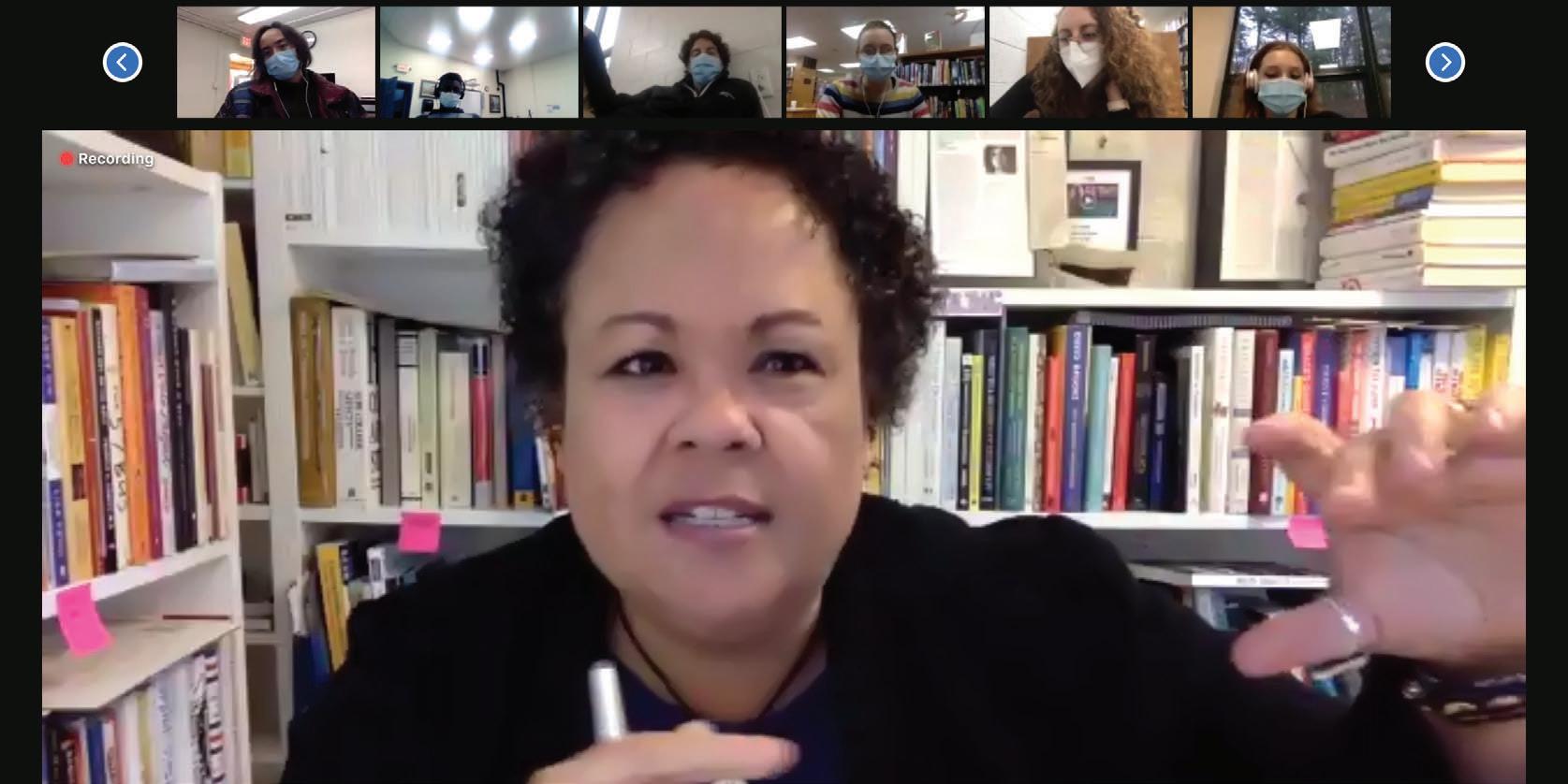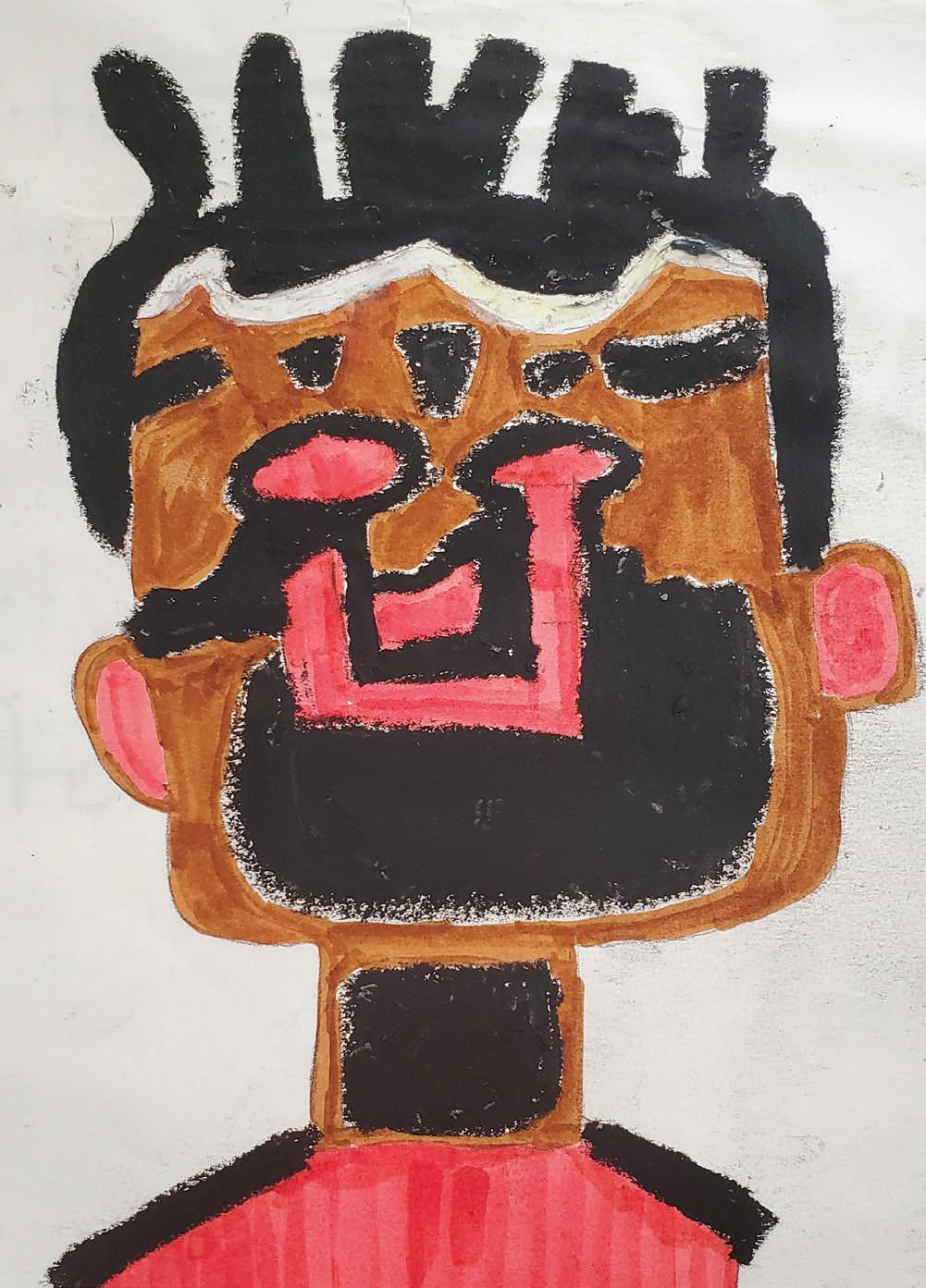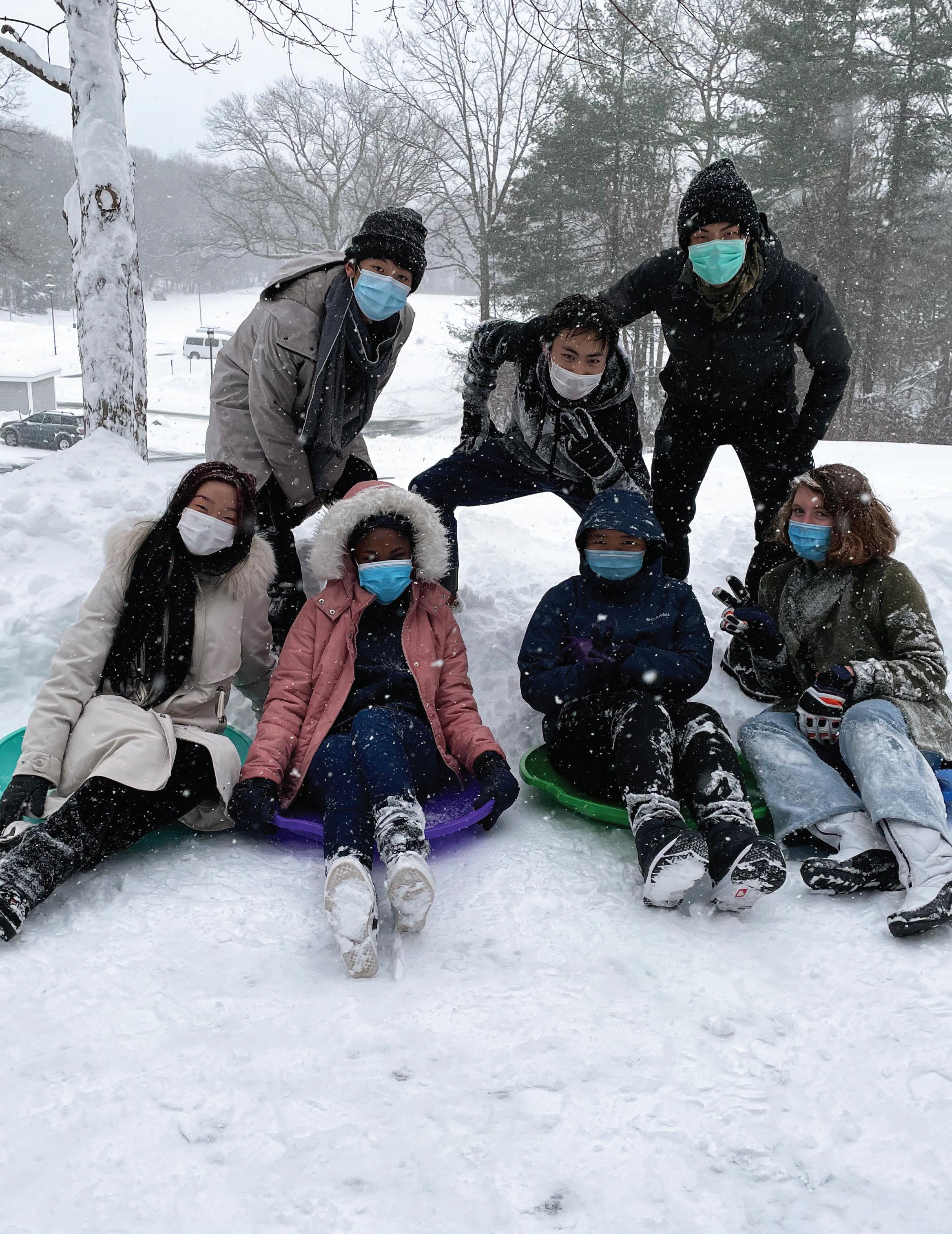
7 minute read
On the Quad
Our Path to Reopening
After a fully remote spring in 2020, planning committees comprised of students, faculty, and staff, focusing on issues such as Public Health & Hygiene, Calendar & Schedule, and Diversity, Equity & Wellness, worked hard over the summer to prepare CSW for a safe return to school in the fall.
Advertisement
The first three weeks of school (September 8 – 25) ran with academic classes online with opportunities for students to come to campus for D Blocks (sports and other co-curriculars) in the afternoon. After weeks of professional development work on agile teaching over the summer, faculty practiced teaching from their classrooms with new technology setups the week of September 21-25. On September 29, on-campus classes resumed, albeit with a number of changes. Students were given the chance to engage in classes virtually from home, or live and in-person on campus, meaning all faculty had to quickly learn how to simultaneously teach students in-person in their classrooms in Weston, and online, to students across the globe. This variance in engagement styles also compelled the school to completely re-imagine its schedule, building out a new weekly structure that accommodated students in multiple time zones and allowed for a weekly deep cleaning of campus.
At the start of the school year, roughly 85% of students opted to learn on-campus, with about 15% at home. Thirty-six boarding students returned to CSW to live and learn on campus, down from the usual 90 student residents.
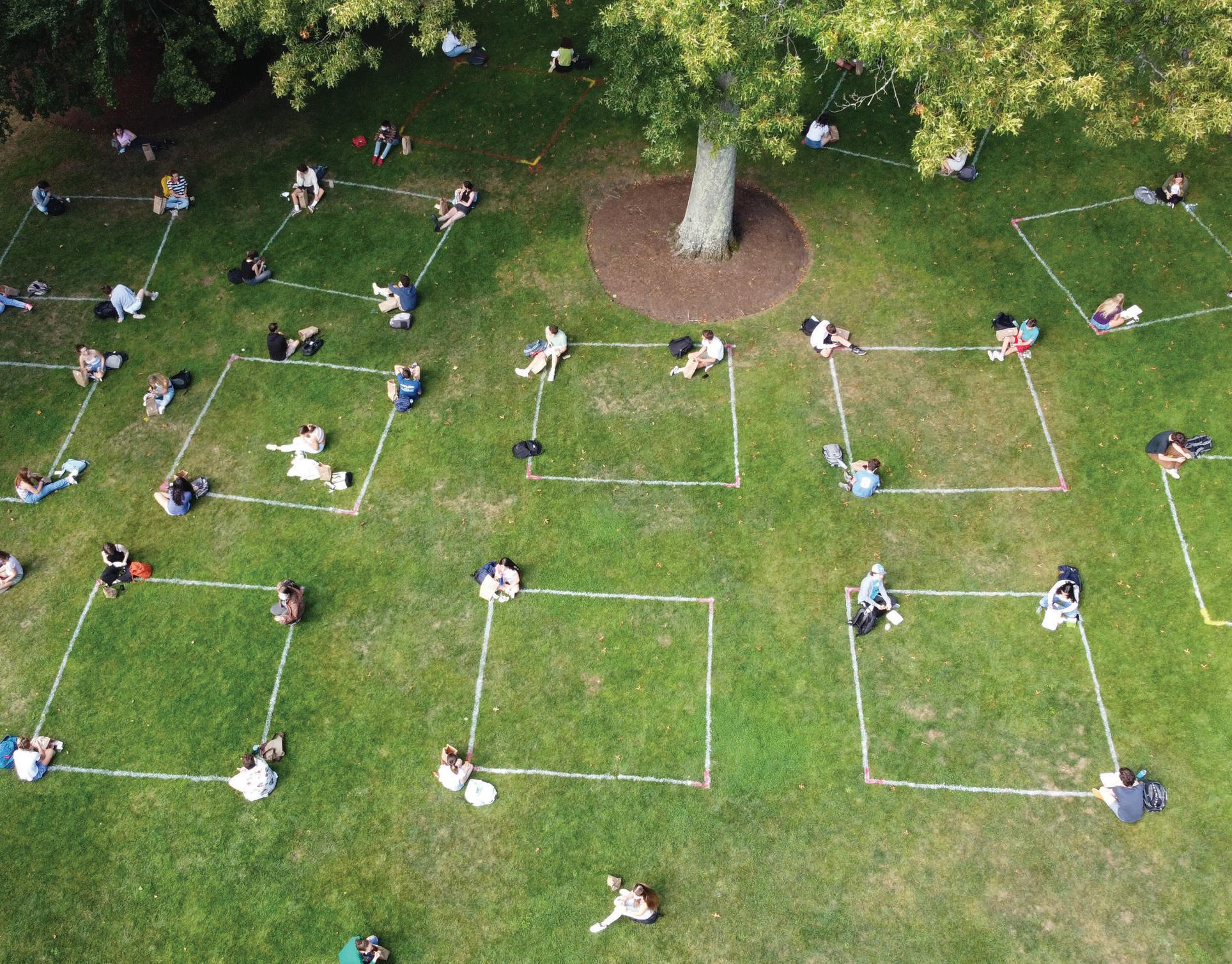
Central American-American
In honor of Latinx Heritage Month (September 15 to October 15), CSW’s Sociedad Latinx affinity group invited María J. Durán to speak at our virtual all-school assembly. María, who identifies as a Central American-American, was born in Managua, Nicaragua, and came to the U.S. when she was six years old. She is the Florence Levy Kay Fellow in U.S. Latinx Cultural Studies at Brandeis University. María spoke about her struggles to stay connected with her Nicaraguan heritage in high school and college, before rediscovering herself and her culture in graduate school. “We all have different gifts, privileges and resources,” she said. “There is a place for you in this social movement, in pursuit of social justice, that extends beyond the end of Latinx Heritage Month.”

Art Alum Series
One silver lining of the COVID-19 pandemic has certainly been the opportunity to connect students and fellow alums with speakers who might otherwise have been unable to come to campus. As part of a new Art Alum Series, the Office of Alumni/ae Engagement, in partnership with the Visual Arts Department, has been hosting Zoom presentations with alumni/ae artists like visual artist Martha Willette Lewis ’83, animator Abby Austin ’14, costumer Aryn Murphy ’07, illustrator and surface designer Krishna Chavda ’04, and musician Amelia Meath ’06 of the band Sylvan Esso. Be sure to stay tuned for more art alum events this spring!
Artwork by Krishna Chavda ’ 04
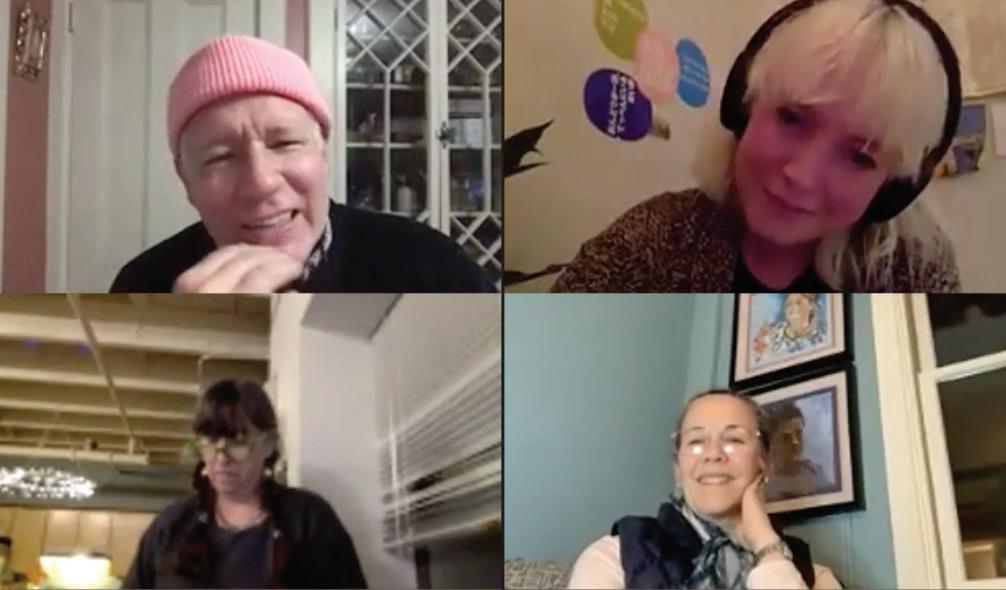
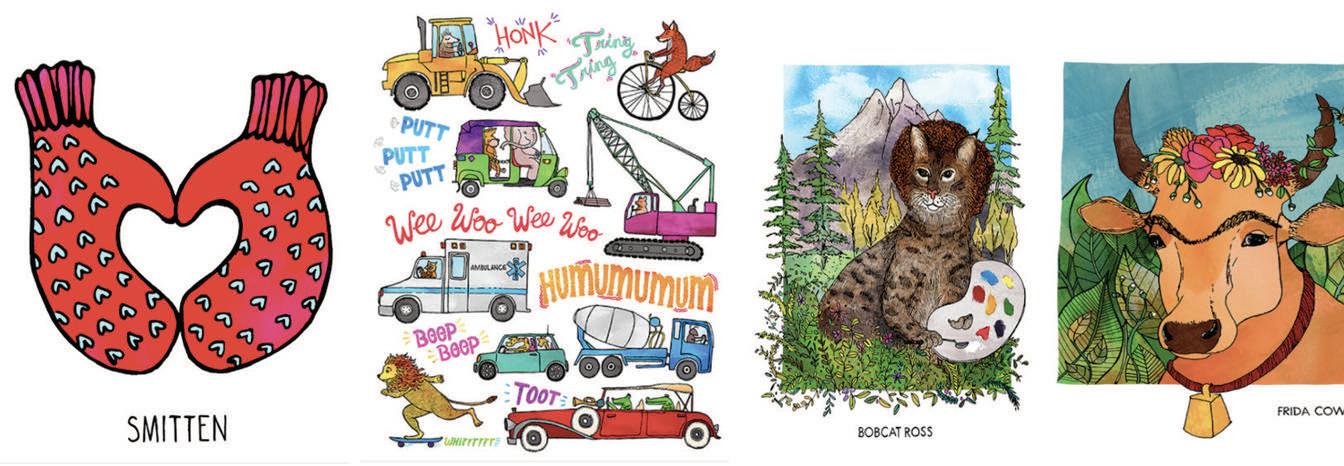



Native Threads
On Indigenous People’s Day, CSW welcomed Jared Yazzie, owner of OXDX Clothing, a Native American-owned business based out of Tempe, Arizona, that specializes in graphic art, screen-printed apparel, and “cut’n’sew” clothing. Jared spoke about his artwork, activism, and clothing line, all of which seek to increase awareness of indigenous issues and to show the beauty of Native culture. The name of the company, OXDX, is an abbreviation for the word “overdose,” and is a commentary on the state of modern society.
Identity Exploration Day
This year, in observation of the annual event previously known as Diversity Day, CSW community members engaged in an Identity Exploration Day series, which kicked off with a moving keynote from Terrence Roberts of the Little Rock Nine. Roberts discussed his childhood growing up in Little Rock, Arkansas, and his journey through this pivotal moment in history, framed by the context of today. A video of Roberts’s presentation is available on the CSW website in the news and events section.
Together in advisory groups, students processed Roberts’s words and created an “identity molecule,” to more fully understand the intersectionality of race and other aspects of their identities. Students also explored the documentary Little White Lie, and read and discussed the story of Lacey Schwartz (who directed the film), as an example of someone coming to terms with their racial identity.



Was, Is, An Eclipse
Artist and CSW alum Kasem Kydd ’14 gave an artist talk at assembly this fall in which they shared the thinking and inspirations behind their art, tracing back from their days as a student at CSW to the present. Their recent exhibition in the Thompson Gallery, Was, Is, An Eclipse, confronted viewers with a rumination on the roots of white supremacy and its persistent effects on Black people(s). Was, Is, An Eclipse simultaneously examined self amidst these changing times, while the installation poetically but soberingly called to memory the history of colonial slavery.
Operation Outbreak
CSW’s SNAP! (Science Nerd Advisory Posse) ran a virus simulation with the entire on-campus school community this fall with the help of alum Ben Law ’13 and the team at Operation Outbreak, an innovative platform for STEM education on infectious diseases and outbreak preparedness created by Sarasota Military Academy Prep and the Sabeti Lab at the Broad Institute of Harvard and MIT. The app collects data to track how a virus would spread through communities like CSW.


A Midsummer Night’s Dream Takes the Theatre Outdoors
The cast and crew of A Midsummer Night’s Dream didn’t let the COVID-19 pandemic get in the way of their fall production. This year’s show was performed both inside the theatre and at various outdoor locations throughout the CSW campus, making for a truly unique and unforgettable viewing experience.


CSW was pleased to virtually welcome author and educator Julie Lythcott-Haims in November for a series of conversations titled “Real American: Being Black in White Spaces.” Julie Lythcott-Haims is the New York Times bestselling author of the anti-helicopter parenting manifesto How to Raise an Adult. Her TED Talk on the subject has more than 5 million views, and in 2020 she became a regular contributor with CBS This Morning on parenting. Her second book is the critically-acclaimed and award-winning prose poetry memoir Real American, which illustrates her experience as a Black and biracial person in white spaces, and served as CSW’s 2020-21 community read.
In her talks, Julie shared moments from her life that have shaped her and her ever-evolving identity as a biracial women, like the time someone wrote the N-word on her locker in high school, or the parent of a classmate publicly insinuated that she had been unjustly accepted to Stanford University over his son, simply because of the color of her skin. She explained how these moments inspired a deep self-hatred of herself, and her Blackness, that took years for her to move past.
Julie ended her remarks with an expression of hope in, and advice for, the next generation.
“More than any generation prior to you, you know in your bones that yes, all lives do matter (should matter), and we need to make it clear that because all lives don’t matter the same in this country, we need to do something about it.”
“Don’t distort your sense of self because of someone else’s version of you,” she said. “Speak up. Speak out. Listen. Listen to others without taking the mic and making it about you.”
CSW sends a special thank you to Arthur Berndt ’68 and the Maverick Lloyd Foundation for their support. Their generosity enables us to bring great authors and speakers like Julie to the CSW community.

